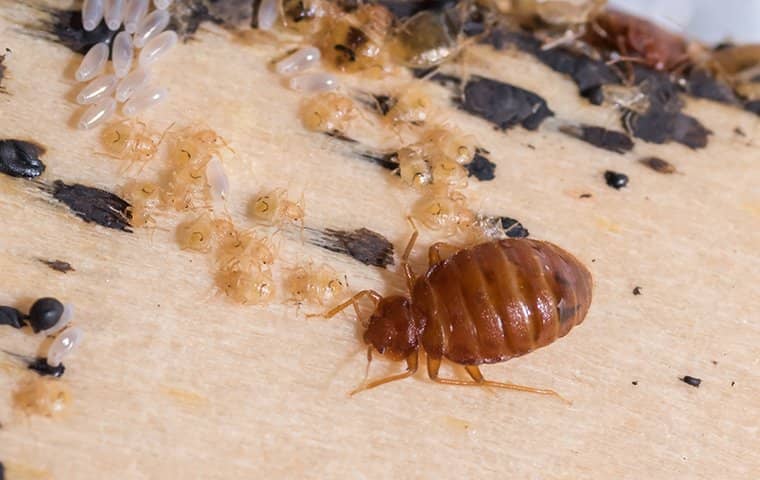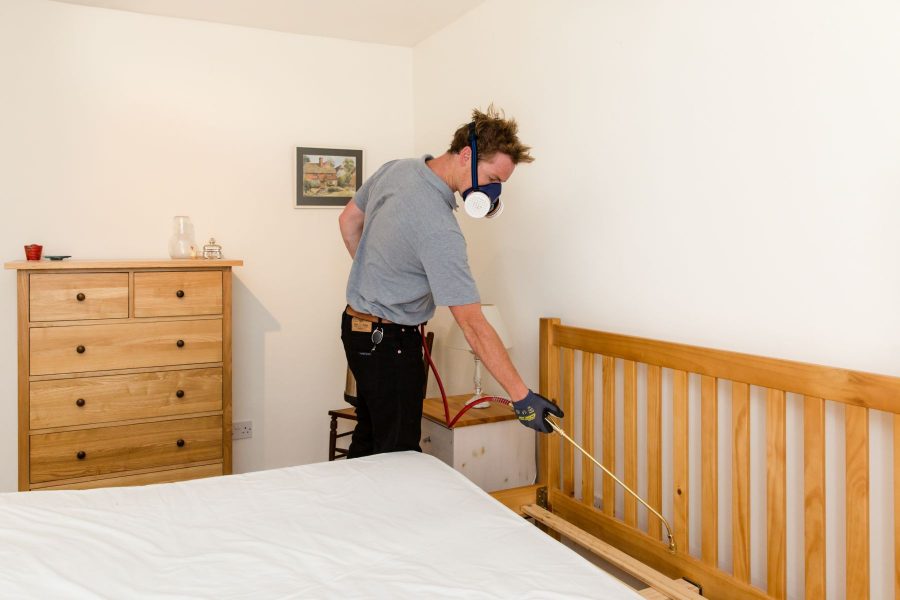Kings Cincinnati Bug Control Companies: Reliable Services
Kings Cincinnati Bug Control Companies: Reliable Services
Blog Article
Kinds of Parasite Control: Which Approach Is Right for Your Invasion?
When encountered with a pest invasion, the selection of a proper method for bug control is crucial in successfully managing the scenario. By exploring the different kinds of pest control techniques readily available, individuals can make educated choices customized to their distinct scenarios, ensuring a much more effective and sustainable end result in pest removal.
Chemical Bug Control
Chemical pest control involves the usage of artificial or normally derived chemicals to manage and remove pest populaces effectively. This technique is generally utilized in agriculture, forestry, and property setups to battle a variety of bugs, consisting of weeds, rodents, and pests. The use of chemical pesticides can offer quick and targeted services to pest invasions, making it a prominent option for lots of people and services.
Among the crucial advantages of chemical parasite control is its ability to swiftly remove parasites, reducing the threat of damages to plants, property, and human health. By making use of details chemicals that target certain bugs, this technique can efficiently control infestations while minimizing injury to valuable microorganisms and the atmosphere when used correctly.
Nonetheless, using chemical insect control also elevates problems regarding potential adverse results on non-target types, water sources, and human wellness. It is vital to comply with safety standards, apply chemicals responsibly, and take into consideration alternate insect control approaches to lessen these risks and ensure lasting insect management methods.
Biological Parasite Control
Biological pest control, likewise understood as biocontrol, utilizes living organisms to manage and minimize insect populaces naturally. This method uses the power of nature to regulate bugs without the requirement for artificial chemicals. Biocontrol can involve the intro of natural opponents of the pest types, such as killers, microorganisms, or bloodsuckers, to suppress bug populaces. By utilizing the bug's all-natural predators or microorganisms, organic parasite control offers a sustainable and ecologically pleasant remedy to pest management.

Mechanical Bug Control
Utilizing hand-operated and physical techniques to manage bug populations, mechanical parasite control provides an alternative technique that does not rely upon making use of living organisms or artificial chemicals. This method entails using obstacles, traps, or various other devices to literally discourage or eliminate insects. By obstructing bug access points or setting up catches to catch them, mechanical pest control can properly decrease problems without introducing chemicals into the setting.
One common instance of mechanical parasite control is the use of mesh displays on home windows and doors to stop pests from entering structures. This straightforward yet effective technique acts as a physical barrier, keeping parasites out while permitting appropriate air flow. In addition, devices like mousetraps, fly swatters, and ultrasonic repellents fall under the mechanical parasite control category.
While mechanical insect control approaches can be labor-intensive and call for regular monitoring and upkeep, they offer a eco friendly and sustainable service for handling bug problems. termite inspection and treatment By combining different mechanical methods, residential or commercial property owners can produce a thorough pest control technique that reduces dependence on chemical pesticides.
Physical Bug Control

Some usual physical insect control approaches include using barriers such as displays or nets to stop parasite entry, catches to capture and eliminate insects, and hand-picking to literally remove insects from plants or structures. Additionally, strategies like heat therapies can be used to manage pests like bed insects by raising the temperature to degrees that are lethal to the bugs.
Physical parasite control is particularly beneficial in incorporated pest administration (IPM) approaches, where multiple insect control approaches are combined for effective bug monitoring while minimizing using chemicals. By making use of physical parasite control techniques, individuals can successfully resolve pest invasions with very little ecological influence.
Integrated Parasite Management
When applying physical pest control approaches as component of parasite monitoring strategies, Integrated Pest Management (IPM) emerges as a detailed strategy that leverages numerous strategies to effectively control pest populations. IPM concentrates on long-term prevention of pests through a combination of biological, cultural, physical, and chemical tools customized to details parasite concerns. By incorporating numerous control methods, IPM intends to lessen the dangers connected with bugs while likewise decreasing reliance on chemical services.
One key aspect of IPM is the emphasis on surveillance and analyzing pest populaces to figure out the most suitable control methods. This proactive approach permits very early intervention and targeted techniques, resulting in much more efficient pest monitoring. In addition, check out this site IPM advertises ecologically friendly techniques by focusing on non-chemical control methods and only making use of chemicals as a last resource.
Verdict

By using the pest's all-natural killers or virus, organic parasite control supplies a environmentally friendly and sustainable option to pest management. - Kings pest control Cincinnati Ohio
Using physical and manual approaches to take care of bug populations, mechanical pest control offers a different technique that does not depend on the use of living microorganisms or artificial chemicals.An efficient approach to taking care of bug populations without relying on chemical or organic techniques involves the usage of physical bug control methods.When carrying out physical pest control approaches as component of pest monitoring approaches, Integrated Bug Management (IPM) arises as a detailed method that leverages numerous methods to effectively manage pest populations. Chemical bug control involves the usage of pesticides, organic parasite control uses all-natural predators, mechanical parasite control involves physical obstacles, physical pest control consists of trapping or eliminating pests, and incorporated pest administration combines multiple approaches for an alternative strategy to pest control.
Report this page